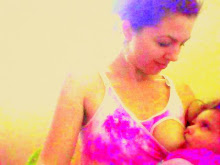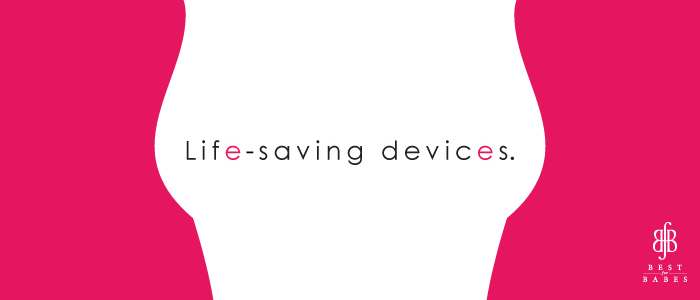Yesterday, DD2 had a high temperature and required a visit to the pediatrician. I realized that with all the information out there about breastfeeding many healthcare providers are still ignorant to the facts. How do we get that information to them? I worry that their discouraging words could scare women, with less support or knowledge, from breastfeeding. The last thing our sisterhood needs are women attacking eachother.
We went to the pediatrician, mostly to humor our pediatrician. She had previously told us that if DD2 ever had a high fever then we should come in because she has not had her immunizations. With the onset of a 102 degrees farenheit temperature, I called the doctor's office. Her regular pediatrician, who is not pushy but informative, was out of town. We were told to come in and see the other woman in the office. They "squeezed" us in. Squeezing us in actually meant sitting in the waiting room for 45 minutes, then sitting in the examination room for another 30+ minutes. With a fussy, tired, hot toddler not a horrible experience but definately not a great one. Luckily, I brought my breasts.
When the pediatrician came in, we were breastfeeding. DD2 was sitting on the examination table and I was standing in front of her breastfeeding in the upright position. DD2 stopped breastfeeding and I reclipped my nursing tank. The first thing the doctor asks is "Are you her mother?" I almost asked, would I be breastfeeding if I were not? Then I remembered that it could be possible that somebody has a wet-nurse who breastfeeds their toddler and takes them to the doctor with their older sibling, or maybe she did not notice the breastfeeding. It could happen, so I refrained from shooting an attitude in her direction and simply answered, "Yes." We went through the typical questions. When she asked if DD2 was getting enough fluids I answered that she had been drinking water and juice and was still breastfeeding, so I was pretty sure she was hydrated. She asked the then typical questions about the extent of breastfeeding. She was amazed that DD2 breastfed so often and through the night. Then like every other doctor or dentist she told me about tooth decay...I agreed (even though I know it is a case by case scenario) and showed her DD2's teeth. I told her we were working on night time weaning, but that it has been hard and that DD2 will cry for hours if I let her. She said, "Well that's weaning." I was starting to really not like this woman. After the examination, DD2 was fairly upset about being undressed probed and redressed, so we breastfed. The doctor looked up from the charts and said "Wow, she is actually breastfeeding." Umm, what does that mean? Really, weird. I felt the doctor's discomfort at seeing us breastfeed. Then of course I got the talk about the risks of not immunizing and that we would need to have DD2's blood drawn and get a urine sample since there were no other factors such as a rash or vomiting. I reminded the doctor that DD2 has never been sick before (beyond a runny nose once last year). DD2 has never had antibiotics. She is a really healthy kid. After that "great and supportive" experience we went to the lab to get DD2's blood drawn. She was a complete champ, did not freak out or cry. Fearless Dad would have been extremely proud had he been there.
It struck me that this woman, with a degree in medicine, was clearly not educated on the normal aspects of raising a child. What is not normal is giving a child dead cows milk to replace living human milk. What is not normal is injecting a child with dead viruses, bacteria, and other stabilizers. These things weaken our children's natural ability to connect and live within the world around them. My breast milk is full of antibodies, easily consumed proteins, and changes to my child's needs. My breastmilk, does not have an acceptable amount of rat hair in it either.
The truth of the matter is, putting manufactured stuff into a devolping body is scary for me. I do not trust our standards in the USA for food and medicine. I have read about the horrible things that formula has caused in other countries less fortunate than the USA and seen how it sabotages breastfeeding relationships in the USA. I have read about the risks immediately after an innoculation and the risks years later. With the hype of new viruses and immunizations, I am continuously reminded that our government is funded by corporate money. There is a thin line between doing what is best for the majority of the population and what is best for those that keep us running.
So, how do I get the information that supports breastfeeding to a doctor's office that is clearly not baby friendly? Should I send them a packet of information, Email them a hazards of not breastfeeding slide show from my CLEC class? I took a little pleasure in giving the doctor a little shock factor. Our family is one of the very few in the USA who continue to breastfeed past 6 months, let alone the first year.
We are not ready to wean, we are not even ready for night time weaning. If we were ready then DD2 would not want to breastfeed anymore. She needs the breast for whatever reason she cannot truely explain with her limited vocabulary, but I see that it comforts her and she loves me for sharing my breast milk with her. We can deal with some tooth decay, some minor dental work, scared doctors, unsure spouses and in-laws, but how many other women would continue to breastfeed when it seems like everyone in their community wants them to stop?
**Note: Part of DD2's blood work came back and her white blood cells are normal, so, probably just a virus we are dealing with.
Subscribe to:
Post Comments (Atom)











You're talking about 'limited vocabulary" So I'm assuming this is a small child. Why would they want to immunize a breastfed baby, anyway?
ReplyDelete"Wow, she is actually breastfeeding."??? After you've just had this long conversation about how she breastfeeds? That is some kind of messed up.
ReplyDeleteI love how she asked if you were the mother, too. I'm guessing, given her inability to fathom toddler breastfeeding, that she just couldn't take in that that's what you were doing when she arrived.